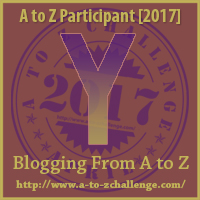I don’t know about any of you, but 2018 was exhausting.
I was angry, furious even, with the political climate in America, seeing people I care about being negatively impacted by State-sponsored (or at the very least State-encouraged) hatred, bigotry, and fear. The #MeToo movement gave me some glimmer of hope that was soon threatened by seeing white men of power, and privilege get a pass, AGAIN, while the women who spoke up were reviled, ridiculed, abandoned, betrayed. I cling to the hope with all my stubborn strength.
I have grieved for nearly 30 transgender women of colour who were murdered for simply living their truth. By extension, I have mourned for all my trans brothers, and sisters everywhere who live in the fear that they might suffer a similar fate, who fear assault, abandonment, rejection.
I have felt the nerves that come with learning to speak my truth, and the sorrow when, more often than not, I’ve let those opportunities pass me by. I have FINALLY started mourning the loss of my father, as complicated as that has been. I’m learning to have compassion for myself. We won’t talk about epic shame storms, and the lingering squalls. I never promised I’d be perfect in 2018 when it came to feeling things, and I still have some problem areas. At least I did my best not to shy away from feeling all the things.
I felt a deep connection with other fans of my favourite little shit show, an underdog in every sense, as we celebrated its appearance in The New York Times, and at the People’s Choice Awards. The famdom be little, but we be mighty, and we have absolutely no chill whatsoever. They helped me remember my love of genre media, comic books, video games. Their enthusiasm helped reignite my own. Remembering how I lost that enthusiasm, was painful, and letting myself feel that pain was also good.
Getting off an airplane after 15 hours and setting my own eyes on the Sydney Opera House, and letting myself feel the giddy excitement, as I realized I soon would be standing on its stage, singing a piece that had never before been performed. I was almost overwhelmed by wonder. Humbled. Honoured. Grateful.
Yeah, I did a lot of feeling last year. Some of it was enjoyable, some of it was excruciating.
So now what? In the midst of navigating all these feelings, someone suggested curiosity would be my best friend. What better choice for my One Word 2019? It’s a pretty big word.
How about you, friends? Are you game to be curious with me? Let’s go!







